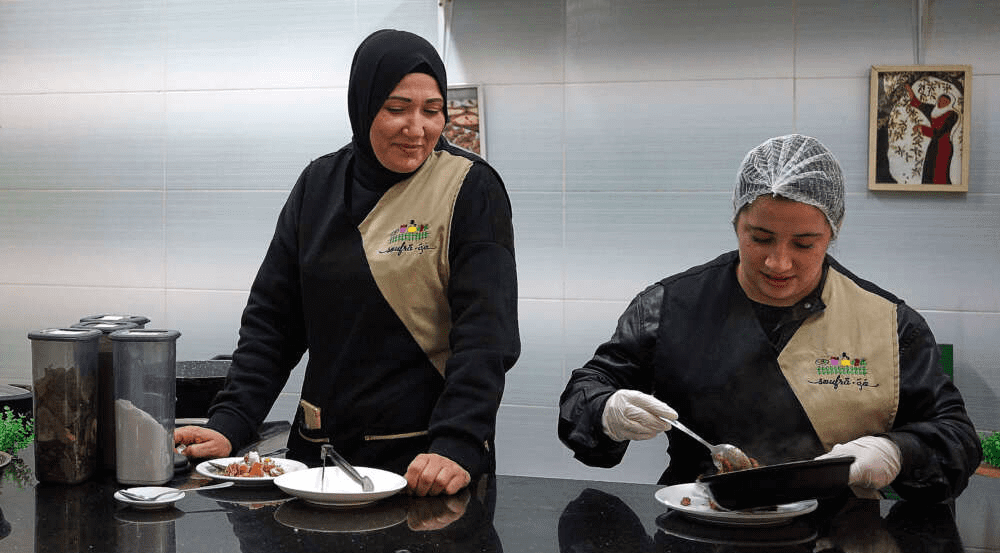
South of Lebanon’s capital, Beirut, in the Burj el Barajneh refugee camp, 40 Palestinian and Syrian women cook for a peaceful community and self-empowerment.
More than 50,000 Palestinian and Syrian refugees live in the Burj el Barajneh camp. They face massive challenges such as overcrowding, poverty, lack of electricity and infrastructure, and limited rights and job opportunities.
The ongoing conflict in Gaza and the escalating tensions between Hezbollah and Israel are significantly worsening the situation. Compounding the crisis are Lebanon’s political instability and soaring food prices, which are also placing an additional strain on the local population. With inflation hitting 124%, food has become prohibitively expensive for most families in the camp, further escalating social tensions.
In recent months, desperation has surged among residents of the Burj el Barajneh camp, leading to a rise in theft and violence. As fears of war mount, families are preparing for possible evacuation, packing their belongings and drawing up emergency plans, though their destinations remain uncertain.
Amid these challenges, the Soufra Cafeteria, operated by Cuisine sans Frontières, plays a crucial role beyond providing employment and training in cooking and business management. It stands as a vital cultural hub where women from diverse backgrounds come together to share and preserve their cultural traditions. The exchange of traditional recipes and culinary techniques at Soufra not only strengthens community ties but also fosters a sense of cultural unity.
Soufra shows that cultural and culinary engagement can help defuse conflicts and build trust across diverse communities. The Soufra Cafeteria contributes to consolidating peace in the camp by bridging divides between Palestinian and Syrian refugees through collaborative activities that promote mutual respect and understanding.